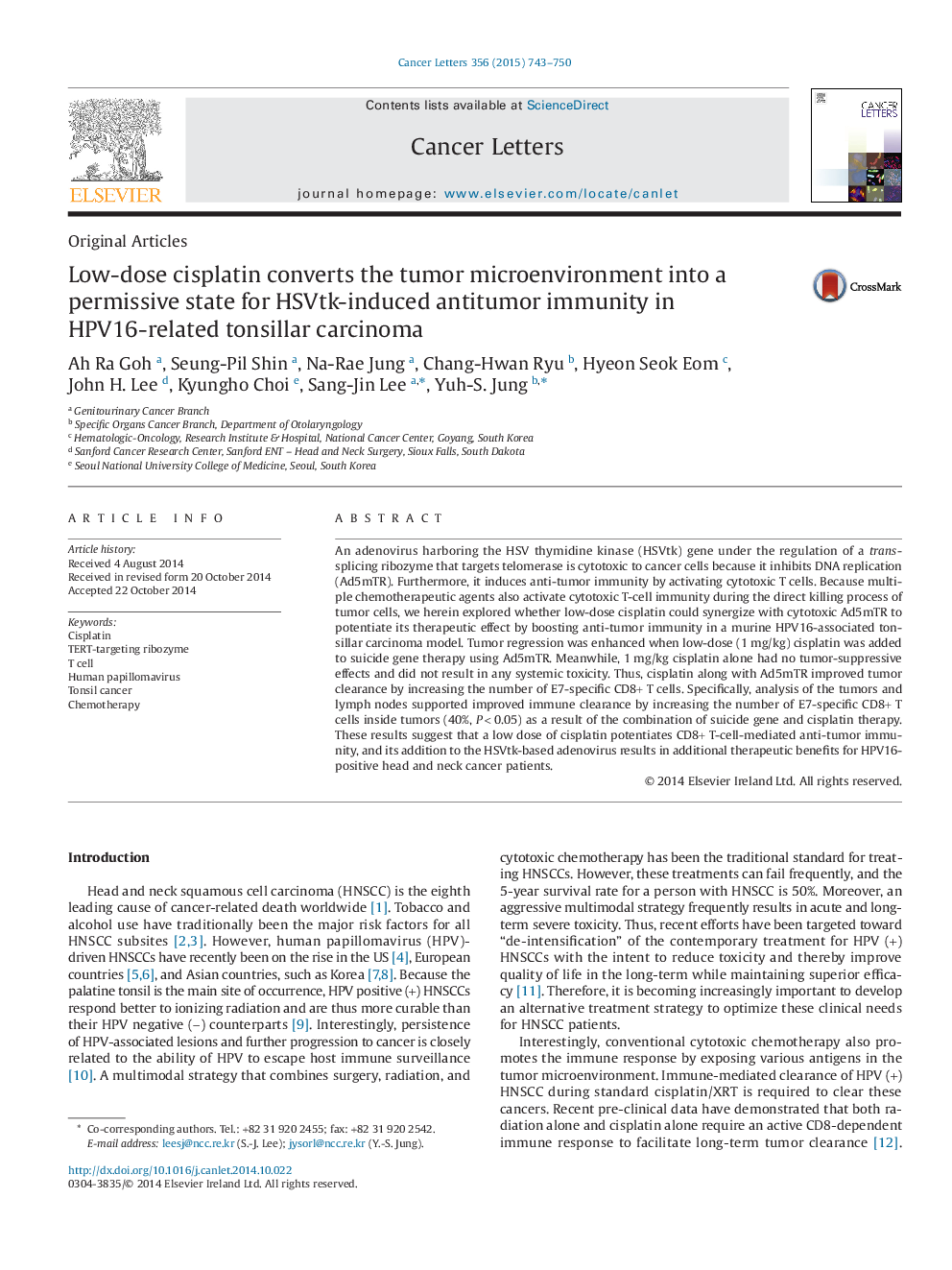| Article ID | Journal | Published Year | Pages | File Type |
|---|---|---|---|---|
| 10899712 | Cancer Letters | 2015 | 8 Pages |
Abstract
An adenovirus harboring the HSV thymidine kinase (HSVtk) gene under the regulation of a trans-splicing ribozyme that targets telomerase is cytotoxic to cancer cells because it inhibits DNA replication (Ad5mTR). Furthermore, it induces anti-tumor immunity by activating cytotoxic T cells. Because multiple chemotherapeutic agents also activate cytotoxic T-cell immunity during the direct killing process of tumor cells, we herein explored whether low-dose cisplatin could synergize with cytotoxic Ad5mTR to potentiate its therapeutic effect by boosting anti-tumor immunity in a murine HPV16-associated tonsillar carcinoma model. Tumor regression was enhanced when low-dose (1âmg/kg) cisplatin was added to suicide gene therapy using Ad5mTR. Meanwhile, 1âmg/kg cisplatin alone had no tumor-suppressive effects and did not result in any systemic toxicity. Thus, cisplatin along with Ad5mTR improved tumor clearance by increasing the number of E7-specific CD8+ T cells. Specifically, analysis of the tumors and lymph nodes supported improved immune clearance by increasing the number of E7-specific CD8+ T cells inside tumors (40%, Pâ<â0.05) as a result of the combination of suicide gene and cisplatin therapy. These results suggest that a low dose of cisplatin potentiates CD8+ T-cell-mediated anti-tumor immunity, and its addition to the HSVtk-based adenovirus results in additional therapeutic benefits for HPV16-positive head and neck cancer patients.
Related Topics
Life Sciences
Biochemistry, Genetics and Molecular Biology
Cancer Research
Authors
Ah Ra Goh, Seung-Pil Shin, Na-Rae Jung, Chang-Hwan Ryu, Hyeon Seok Eom, John H. Lee, Kyungho Choi, Sang-Jin Lee, Yuh-S. Jung,
